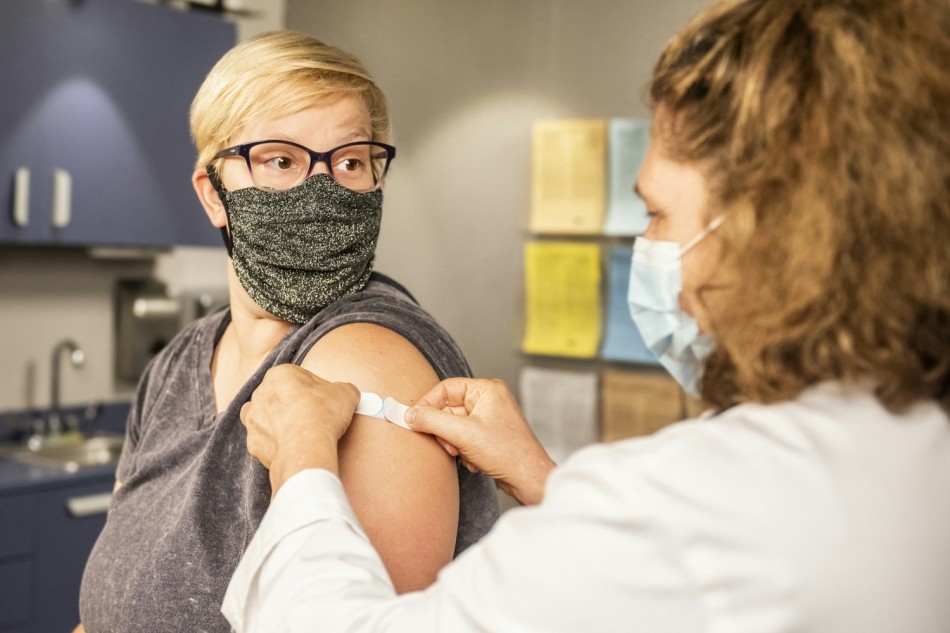HPV Vaccine Shows Significant Cancer Prevention in Latest Studies

The HPV vaccine has now shown effectiveness not just in preventing the side effects of the numerous varieties of human papillomavirus but also in significant cancer prevention.
Research spanning nearly two decades since the debut in 2006, the first HPV vaccine now indicates a significant reduction in HPV-related cancer risk among vaccinated individuals in adulthood that was once originally marketed to girls and women.
Breakthrough Findings in HPV Vaccine
HPV, a widespread viral infection, contributes to an estimated 690,000 cancer cases globally annually, as per World Health Organization data.
This virus targets specific tissues, elevating the likelihood of developing cervical, anal, and head and neck cancers.
Initially designed in 2006 primarily for young women to combat cervical cancer, the HPV vaccine has evolved to cover additional HPV strains. It is now recommended for boys as well, targeting anal and head and neck cancers.
The current vaccination guidelines advise administering it to children aged 11 or 12, unvaccinated adults up to age 26, and potentially up to age 45 as recommended by healthcare providers.
Recent reports showcase promising results in cancer prevention.
Scotland's data in early 2024 revealed zero cases of cervical cancer among individuals vaccinated at ages 12 or 13, marking a significant milestone in population-level studies with an 80% uptake rate.
Extending Protection Across Cancer Types
In developed nations like the United States, head and neck cancers linked to HPV have surpassed cervical cancer in prevalence.
Preliminary findings presented at the 2024 American Society of Clinical Oncology (ASCO) conference displayed a 56% risk reduction for HPV-associated head and neck cancer in vaccinated men.
Dr. Michelle Chen, an Assistant Professor at Stanford University specializing in head and neck cancer, expressed excitement about these findings.
She stated that the ASCO study underscores the anticipated impact of HPV vaccination in curbing HPV-related head and neck cancer rates.
Experts anticipate that the full scope of the HPV vaccine's benefits to unfold gradually. Dr. Erich Sturgis from Baylor's Department of Otolaryngology-Head & Neck Surgery emphasized, "We may see the complete impact in a couple more decades since most affected individuals are in their 50s, 60s, and 70s."
Read Also: Child Care Crisis Hits US Military Families Hard
Increasing HPV Vaccination Rates Among Adolescents and Overcoming Hurdles
The Human papillomavirus (HPV) is a viral infection, commonly caused by mucous membrane growths or warts. The virus itself causes warts and some types of cancers and has over more than 100 varieties.
Encouragingly, HPV vaccination rates have been on the rise. A preliminary study from the 2024 ASCO conference reported an increase from 23.3% in 2011 to 43% in 2020 in the United States.
Dr. Chen highlighted ongoing efforts to boost vaccination rates, especially among males, who historically trailed behind females.
Despite progress, challenges persist, with only around 63% of teens up-to-date on HPV vaccinations as of 2022.
Parents' lack of awareness about vaccine benefits and safety concerns remain key barriers.
Dr. Sturgis stressed the urgency of seizing this preventive opportunity, stating, "We have a unique chance to prevent cancer in future generations through straightforward childhood vaccinations."
This ongoing drive aims to achieve higher HPV vaccination rates, aligning with public health goals for a healthier tomorrow.
Related Article: Arizona Father Convicted of Starving 6-Year-Old Son to Death in Horrific Case
© 2024 ParentHerald.com All rights reserved. Do not reproduce without permission.